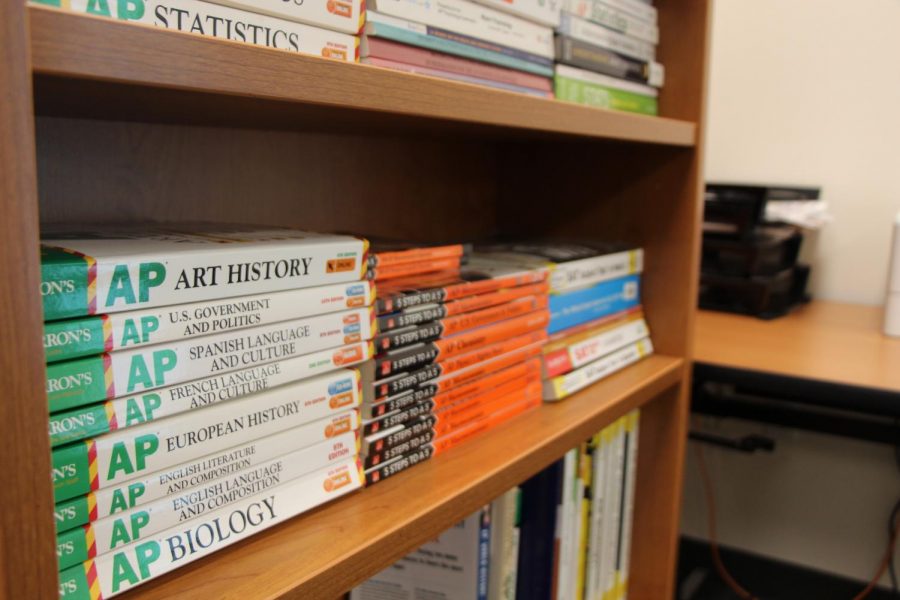AP Exams Around The Corner Prompt Students’ Different Study Methods
While a multitude of resources are available to students, AP exam books, such as Barron’s, 5 Steps to a 5, and Princeton review, are a popular way to prepare with only a two months left before exam week.
March 12, 2021
With AP exams just around the corner, the School has decided that students will be taking the exams in-person and on paper, despite the College Board offering an online option. Regardless, students are beginning to study and using a multitude of resources to help them.
Junior Kiley Malmberg studies for her AP exams using Barron’s books. “I choose to use Barron’s and 5 Steps to a 5 as they have multiple practice tests that help me prepare for the exam…. [T]hey also help explain to me any wrong answers I may get during the practice exams so I can learn from my mistakes and get the best possible score on the actual test,” she said.
Similarly, junior Danielle Lancaster said, “To study for most of my AP classes, I use the review book 5 Steps to a 5 because I feel as though the questions are the most accurate compared to the material that is going to be on the test. In addition, 5 Steps to a 5 have practice FRQs and multiple-choice questions.”
While both Lancaster and Malmberg use AP study books to prepare them for AP exams, junior Cameron Salehi and sophomore Skyler Malmberg use alternative resources.
Malmberg said, “I have two AP exams that are back to back that I need to prepare for which are AP Physics 1 and AP United States History. For the latter, I plan on reviewing old multiple-choice questions, my assignments, and notes. I also plan on using websites like Khan Academy as well as videos by tutors such as Steve Heimler. For [AP Physics 1], I plan on doing practice problems and reviewing information that I have been taught in classes as well as seeking outside resources.”
Exam preparation is not only dependent on students but is bolstered by how the teachers facilitate further studying in order to help students achieve the best possible score they can.
AP Government and World History teacher Mr. Nicholas Cramer recommends that since teachers know best what the College Board is looking for on the AP exam, students defer to their teachers to see which review book is the best for their specific course.
Mr. Cramer also urged students to provide feedback to their teachers. “You should… let your teacher know of an area you’d like to review more in-depth as the test approaches. Teachers greatly benefit from students letting us know specific areas to work on and we can craft reviews accordingly,” Mr. Cramer said. Mr. Cramer will be holding review sessions for his AP Government and Politics class after school since that class was taught in the first semester.
Science teacher Dr. James Haley also begins preparing his students a few weeks prior to the exam. “In AP Chemistry, we usually finish the curriculum a few weeks before the exam. I will spend part of a class period reviewing the material from an earlier unit, and then we will practice with old AP questions. I typically assign a couple of quizzes to motivate my students to review the old units. We also do a full-length practice exam so that they can practice answering the questions in the amount of time allotted.”
AP exams are quickly approaching, leaving students with about two months to prepare for them. While it may be difficult to study due to added stress from the pandemic, Benjamin makes its faculty and other resources readily available to students. So, it is important to take these few months to fully utilize those resources. Good luck!



